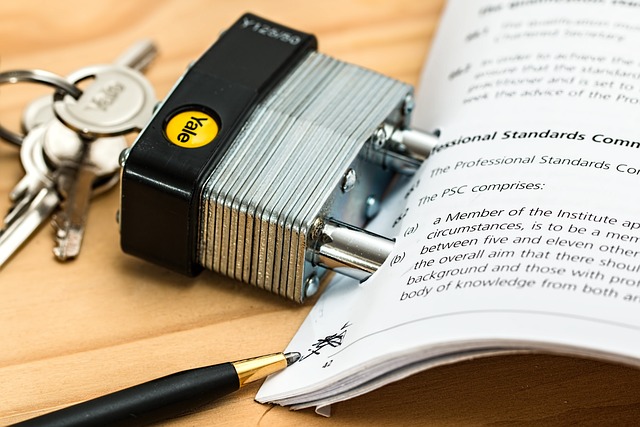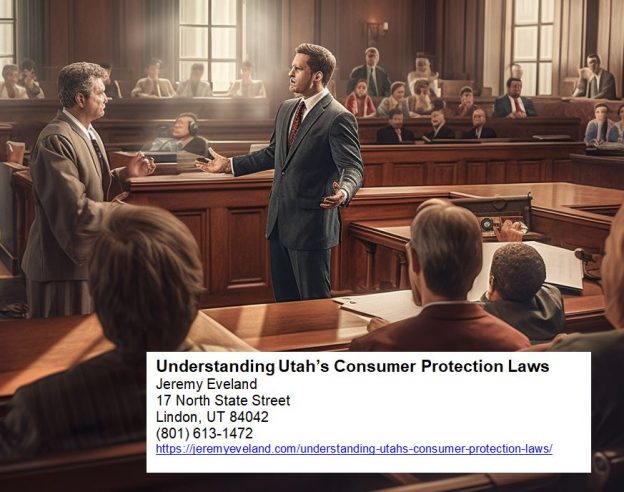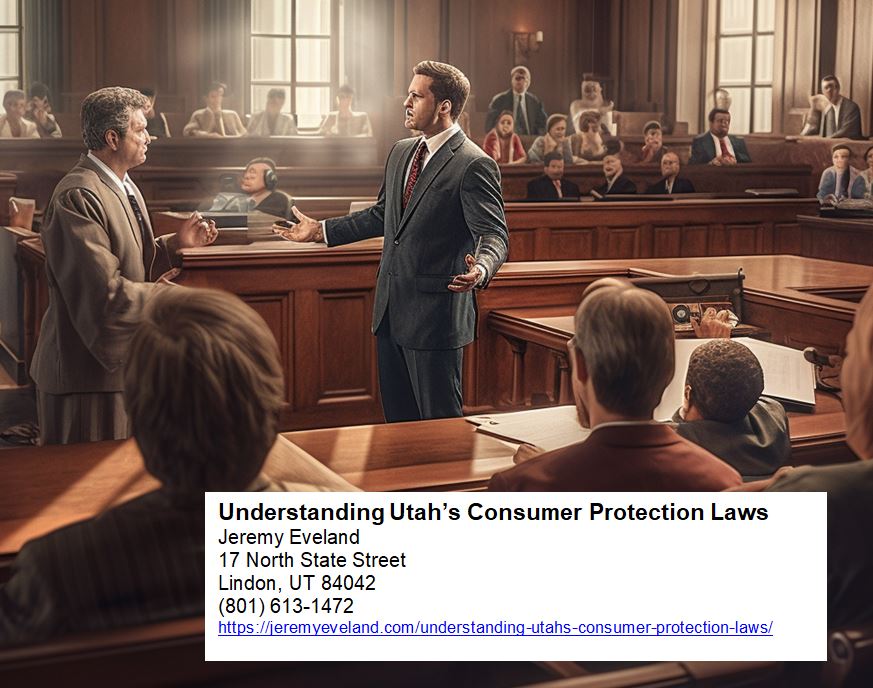In need of a Commercial Contract Attorney? Look no further. In this article, you will learn about the importance of having a reliable and experienced attorney to handle your commercial contracts. Whether you are a small business owner or a corporate executive, understanding the intricacies of commercial contracts is crucial to protect your interests and ensure legal compliance. Let’s delve into the world of commercial contracts and explore how the expertise of a skilled attorney can benefit you and your business.
Drafting, negotiating, and reviewing commercial contracts can be a complex and daunting task. A Commercial Contract Attorney specializes in providing legal advice and guidance regarding all aspects of contractual agreements. From ensuring compliance with state and federal laws to protecting your intellectual property rights, a skilled attorney will walk you through the process and address any legal concerns that may arise. By consulting with a Commercial Contract Attorney, you can rest assured knowing that your contracts are thorough, enforceable, and tailored to the specific needs of your business. With their expertise, you can focus on growing your business and leave the legal complexities to the professionals. Contact our office today to discuss your commercial contract needs and take the first step towards a solid legal foundation for your business.

This image is property of pixabay.com.
Introduction to Commercial Contract Attorney
If you are a business owner, you understand the importance of contracts in protecting your interests and ensuring smooth operations. However, navigating the complexities of commercial contracts can be a daunting task. That’s where a commercial contract attorney can be invaluable. In this article, we will explore what a commercial contract attorney does, why businesses need them, and the benefits of hiring one.
What is a commercial contract attorney?
A commercial contract attorney is a legal professional who specializes in providing advice and guidance on commercial contract matters. Their primary focus is on reviewing, drafting, and negotiating contracts on behalf of businesses. They possess a deep understanding of contract law and leverage their expertise to protect the interests of their clients.
Why do businesses need a commercial contract attorney?
Commercial contracts govern relationships between businesses, suppliers, clients, and employees. These contracts lay out the terms and conditions under which business is conducted, safeguarding the interests of all parties involved. However, these contracts are often filled with complex legal language that requires specialized knowledge to understand fully.
Moreover, commercial contracts can involve substantial financial investments and potential risks. Poorly drafted or ambiguous contract terms can lead to misunderstandings, disputes, or even costly litigation. Given the potential risks and complexities involved, it is crucial for businesses to seek the guidance of a commercial contract attorney.
Benefits of hiring a commercial contract attorney
Hiring a commercial contract attorney offers numerous benefits for businesses. Let’s explore some of the key advantages:
1. Expertise in contract law
Commercial contract attorneys possess in-depth knowledge and understanding of contract law. They stay updated with the latest legal developments and industry-specific regulations, ensuring that your contracts are compliant and enforceable. Their expertise helps you navigate complex legal language, identify potential risks and liabilities, and craft contracts that protect your interests.

2. Mitigating legal risks
Drafting and negotiating contracts without legal expertise can expose your business to unnecessary risks. A commercial contract attorney can assess your business objectives, evaluate potential risks, and propose tailored solutions to mitigate those risks. Their guidance ensures that your contracts are comprehensive, clear, and minimize the possibility of future disputes or legal complications.
3. Efficient contract negotiation
Commercial contract attorneys excel in the art of negotiation. They possess strong communication and persuasion skills, allowing them to advocate for your interests effectively. Through skillful negotiation, they can secure favorable terms and conditions, protect your business’s financial and legal interests, and ensure that your agreements align with your objectives.
4. Strong legal documentation
The use of precise legal language and well-drafted clauses is crucial in commercial contracts. Commercial contract attorneys have the expertise to draft contracts that are clear, enforceable, and effective in protecting your rights. They pay attention to every detail, ensuring that your contracts are comprehensive and unambiguous, reducing the chances of misinterpretation or disagreement.
Services Offered by a Commercial Contract Attorney
Commercial contract attorneys offer a wide range of services to businesses. Let’s explore some of the key services they provide:
Reviewing and Drafting Contracts
When entering into a new business relationship, it is essential to have a thorough understanding of the terms and conditions. Commercial contract attorneys meticulously review contracts, ensuring that every aspect aligns with your business objectives and legal requirements. They can also draft contracts from scratch, tailoring them to meet your specific needs and protecting your interests.
Negotiation and Dispute Resolution
Commercial contract attorneys are skilled negotiators who can represent you during contract negotiations. They have a deep understanding of contract law and can identify potential issues or discrepancies. By advocating for your interests, they can secure favorable terms and conditions. In the event of a dispute, commercial contract attorneys can guide you through the resolution process, helping you find the best possible outcome.
Legal Advice on Contractual Matters
Commercial contract attorneys provide ongoing legal advice related to contractual matters. They can answer questions, address concerns, and provide guidance on various contract-related issues. Whether you are considering amending an existing contract or have questions about specific contractual terms, commercial contract attorneys are there to offer their expertise and ensure that your decisions comply with the law.
Ensuring Compliance with Laws and Regulations
Laws and regulations that govern contractual agreements can vary widely depending on the industry and jurisdiction. Commercial contract attorneys stay updated with the latest legal developments and industry-specific regulations, ensuring that your contracts comply with all applicable laws and regulations. Their expertise helps you navigate potential legal pitfalls and reduces the risk of non-compliance.

This image is property of pixabay.com.
Importance of Legal Expertise in Commercial Contracts
Commercial contracts are often filled with intricate legal language and complexity. Here’s why having legal expertise is crucial in dealing with commercial contracts:
Understanding complex legal language
Commercial contracts are often dense with legal jargon and terms. Without adequate legal expertise, understanding the implications of these terms can be challenging. Commercial contract attorneys have the knowledge and experience to decipher the complex language of contracts, ensuring that you fully comprehend the rights and obligations contained within them.
Identifying potential risks and liabilities
Commercial contracts carry inherent risks and potential liabilities. A commercial contract attorney can identify potential risks in your contracts, whether they are related to ambiguous terms, inadequate dispute resolution mechanisms, or compliance issues. By recognizing and addressing these risks upfront, they help protect your business from potential lawsuits, financial losses, and damage to your reputation.
Protecting the interests of the business
A well-drafted commercial contract should protect the interests of all parties involved. A commercial contract attorney acts as your advocate, ensuring that your business’s interests are properly safeguarded. They can negotiate favorable terms, including provisions that protect your intellectual property, limit your liability, and secure payment terms that are beneficial to your business.
Avoiding costly legal disputes
Disputes arising from poorly drafted or ambiguous contracts can be expensive and time-consuming. By engaging a commercial contract attorney, you can minimize the likelihood of disputes. They can identify potential pitfalls and address them proactively, reducing the possibility of costly litigation. In the event of a dispute, commercial contract attorneys can represent your interests and work towards a resolution that is favorable to you.
Key Elements of a Commercial Contract
Commercial contracts typically contain several key elements. It is important to be familiar with these elements to ensure that your contracts are comprehensive and effective. Let’s explore some of the key elements commonly found in commercial contracts:
Offer and Acceptance
A commercial contract starts with an offer made by one party and an acceptance by the other party. The offer should contain specific details, such as the scope of work, pricing, and the timeframe for fulfillment. The acceptance must be unambiguous and mirror the terms of the offer.
Consideration
Consideration refers to the value exchanged between the parties. It can be in the form of money, goods, services, or a promise. Consideration symbolizes that both parties are receiving something of value in exchange for their obligations under the contract.
Mutual Assent
Mutual assent refers to the agreement of both parties to be bound by the terms of the contract. This element ensures that there is a meeting of the minds between the parties and that they have a clear understanding of the terms and conditions.
Terms and Conditions
The terms and conditions of a contract set out the rights and obligations of each party. This section includes details about the scope of work, payment terms, warranties, dispute resolution mechanisms, and termination clauses, among other provisions. Commercial contract attorneys ensure that these terms and conditions are clear, unambiguous, and adequately protect the interests of their clients.
Performance and Delivery
This element outlines the requirements and expectations related to the performance of the contracted services or the delivery of goods. It includes deadlines, quality standards, and any specific milestones or deliverables that must be met.
Termination and Remedies
Termination clauses establish the circumstances under which either party can terminate the contract. They also lay out the remedies available to parties in case of a breach of contract. Commercial contract attorneys carefully draft termination clauses to protect their clients’ interests and outline the steps required to enforce the contract or seek damages.

This image is property of pixabay.com.
Common Issues in Commercial Contracts
Commercial contracts can give rise to several common issues that businesses must be aware of. By identifying these issues, you can proactively address them and minimize the associated risks. Here are some of the common issues encountered in commercial contracts:
Breach of Contract
A breach of contract occurs when one party fails to fulfill its obligations as outlined in the contract. This can include failure to pay on time, deliver goods as specified, or perform services according to the agreed-upon standards. Commercial contract attorneys can guide you through the process of addressing a breach of contract, helping you enforce the terms of the agreement or seek remedies for the damages incurred.
Ambiguity in Contractual Terms
Ambiguity in contractual terms can lead to misunderstandings and disputes. Clear and unambiguous contract language is essential to avoid confusion. Commercial contract attorneys specialize in drafting contracts that are precise and easily understood by all parties involved. By ensuring clarity in contract language, they can minimize the risk of ambiguity and subsequent disagreements.
Non-Compliance with Legal Requirements
Commercial contracts must comply with all applicable laws and regulations. Failure to adhere to legal requirements can result in significant fines, penalties, or even invalidate the contract altogether. Commercial contract attorneys stay up to date with the relevant laws and regulations, ensuring that your contracts are compliant and mitigate legal risks.
Failure to Fulfill Obligations
Sometimes, despite best efforts, parties may find themselves unable to fulfill their contractual obligations. In such cases, it is important to have provisions in the contract that outline the steps to be taken and the remedies available to the affected parties. Commercial contract attorneys can help you negotiate and draft these provisions, ensuring that your business interests are protected even in challenging situations.
Disputes over Payment
Disputes over payment terms and conditions can arise if they are not clearly laid out in the contract. To avoid such disputes, it is crucial to have precise payment provisions that clearly outline the amount, frequency, and method of payment. Commercial contract attorneys can help you craft payment terms that are fair, reasonable, and effective in avoiding payment-related conflicts.
Benefits of Hiring a Commercial Contract Attorney
Now that we have explored the various services offered by commercial contract attorneys and discussed the importance of legal expertise in commercial contracts, let’s dive into the benefits of hiring one for your business:
Expertise in Contract Law
Commercial contract attorneys possess a deep understanding of contract law. They stay updated with the latest legal developments and industry-specific regulations, ensuring that your contracts are legally sound and enforceable. Their expertise helps you navigate complex legal language, protect your business interests, and avoid potential legal pitfalls.
Mitigating Legal Risks
Drafting and negotiating contracts without legal expertise can expose your business to unnecessary risks. Commercial contract attorneys can assess your business objectives, identify potential risks, and propose tailored solutions to mitigate those risks. By engaging a commercial contract attorney, you minimize the likelihood of disputes, legal complications, and financial losses.
Efficient Contract Negotiation
Commercial contract attorneys excel in the art of negotiation. They possess strong communication and persuasion skills, allowing them to advocate for your interests effectively. Through skillful negotiation, they can secure favorable terms and conditions that protect your financial and legal interests. Their expertise ensures that your agreements align with your business objectives while minimizing potential risks.
Strong Legal Documentation
The use of precise legal language and well-drafted clauses is crucial in commercial contracts. Commercial contract attorneys have the expertise to craft contracts that are clear, enforceable, and effective in protecting your rights. They pay attention to every detail, ensuring that your contracts are comprehensive and unambiguous, reducing the chances of misinterpretation or disagreement.
When to Consult a Commercial Contract Attorney
Given the importance of commercial contracts in safeguarding your business interests, it is essential to consult a commercial contract attorney in various scenarios. Here are some situations where seeking their guidance is highly recommended:
Starting a new business
When starting a new business, there are numerous contracts that need to be drafted and negotiated. From shareholder agreements to employment contracts, commercial contract attorneys can guide you through the process, ensuring that your agreements are legally enforceable and protect your interests.
Entering into a partnership or joint venture
Entering into a partnership or joint venture agreement requires careful consideration of the terms and conditions. Commercial contract attorneys can review these agreements, negotiate on your behalf, and protect your interests by ensuring that the terms are fair and reasonable.
Acquiring or selling a business
In the process of acquiring or selling a business, numerous contracts are involved. From purchase agreements to transition service agreements, commercial contract attorneys can lead the negotiations and ensure that the terms of the agreements protect your interests.
Expanding into new markets
Expanding your business into new markets often requires entering into contracts with local partners, suppliers, or distributors. Commercial contract attorneys can navigate the legal landscape of new jurisdictions, ensuring that your contracts comply with local laws and regulations.
Facing contract disputes or litigation
When faced with contract disputes or potential litigation, it is essential to seek the guidance of a commercial contract attorney. They can assess your rights, obligations, and potential legal remedies, representing your interests and negotiating on your behalf.
How to Choose a Commercial Contract Attorney
Choosing the right commercial contract attorney is crucial to ensuring that your business is protected and your contracts are legally sound. Here are some key factors to consider when selecting a commercial contract attorney:
Experience and expertise in commercial law
Look for a commercial contract attorney with extensive experience and expertise in commercial law. They should have a deep understanding of contract regulations, industry-specific requirements, and the ability to provide practical advice tailored to your business needs.
Track record of successful contract negotiations
An effective commercial contract attorney should have a proven track record of successful contract negotiations. Research their past cases and outcomes to assess their negotiation skills and ability to secure favorable terms for their clients.
Understanding of industry-specific regulations
Different industries have unique legal requirements and regulations. Ensure that the commercial contract attorney you choose has a solid understanding of your industry. They should be up to date with industry trends, standard practices, and the specific regulations that govern your business.
Good communication and responsiveness
Clear communication and responsiveness are crucial when working with a commercial contract attorney. They should be able to explain complex legal concepts in plain language and be accessible when you need their guidance. Look for an attorney who is thorough in reviewing your contracts, promptly responds to your inquiries, and keeps you informed throughout the process.
Cost of Hiring a Commercial Contract Attorney
The cost of hiring a commercial contract attorney can vary depending on factors such as their level of experience, the complexity of your contracts, and the scope of work involved. Here are some common fee arrangements:
Hourly rates
Many commercial contract attorneys charge an hourly rate for their services. Hourly rates can vary significantly based on the attorney’s experience and location. Before engaging an attorney, discuss their hourly rate and estimate the total cost based on the anticipated time needed for your project.
Flat fee arrangements
For certain routine contract matters, attorneys may offer a flat fee arrangement. This means that you and the attorney agree upon a fixed fee for specific services, such as reviewing or drafting a standard contract. Flat fee arrangements can provide clarity and predictability regarding costs.
Retainer agreements
For ongoing legal services, such as serving as your general counsel or providing contract review on an as-needed basis, commercial contract attorneys may offer retainer agreements. Retainer agreements involve paying a recurring fee in exchange for access to legal services within a predefined scope. Retainer agreements are beneficial when you require ongoing legal advice and support.
Conclusion
The importance of a commercial contract attorney cannot be overstated when it comes to protecting businesses and ensuring secure and favorable contractual agreements. From reviewing and drafting contracts to resolving disputes and providing legal advice, these professionals play a crucial role in safeguarding the interests of businesses. When faced with complex commercial contracts or legal disputes, it is essential to consult a knowledgeable and experienced commercial contract attorney who can provide expert guidance and representation.
If you are in need of assistance with your commercial contracts or have questions regarding contract law, we encourage you to reach out to us for a consultation. Our team of skilled commercial contract attorneys is committed to protecting your business interests and providing you with the comprehensive legal support you need. Contact us today for personalized and efficient solutions to your commercial contract needs.
Areas We Serve
We serve individuals and businesses in the following locations:
Salt Lake City Utah
West Valley City Utah
Provo Utah
West Jordan Utah
Orem Utah
Sandy Utah
Ogden Utah
St. George Utah
Layton Utah
South Jordan Utah
Lehi Utah
Millcreek Utah
Taylorsville Utah
Logan Utah
Murray Utah
Draper Utah
Bountiful Utah
Riverton Utah
Herriman Utah
Spanish Fork Utah
Roy Utah
Pleasant Grove Utah
Kearns Utah
Tooele Utah
Cottonwood Heights Utah
Midvale Utah
Springville Utah
Eagle Mountain Utah
Cedar City Utah
Kaysville Utah
Clearfield Utah
Holladay Utah
American Fork Utah
Syracuse Utah
Saratoga Springs Utah
Magna Utah
Washington Utah
South Salt Lake Utah
Farmington Utah
Clinton Utah
North Salt Lake Utah
Payson Utah
North Ogden Utah
Brigham City Utah
Highland Utah
Centerville Utah
Hurricane Utah
South Ogden Utah
Heber Utah
West Haven Utah
Bluffdale Utah
Santaquin Utah
Smithfield Utah
Woods Cross Utah
Grantsville Utah
Lindon Utah
North Logan Utah
West Point Utah
Vernal Utah
Alpine Utah
Cedar Hills Utah
Pleasant View Utah
Mapleton Utah
Stansbury Par Utah
Washington Terrace Utah
Riverdale Utah
Hooper Utah
Tremonton Utah
Ivins Utah
Park City Utah
Price Utah
Hyrum Utah
Summit Park Utah
Salem Utah
Richfield Utah
Santa Clara Utah
Providence Utah
South Weber Utah
Vineyard Utah
Ephraim Utah
Roosevelt Utah
Farr West Utah
Plain City Utah
Nibley Utah
Enoch Utah
Harrisville Utah
Snyderville Utah
Fruit Heights Utah
Nephi Utah
White City Utah
West Bountiful Utah
Sunset Utah
Moab Utah
Midway Utah
Perry Utah
Kanab Utah
Hyde Park Utah
Silver Summit Utah
La Verkin Utah
Morgan Utah
Lawyer for Commercial Contracts Consultation
When you need help from an attorney who does commercial contracts, call Jeremy D. Eveland, MBA, JD (801) 613-1472 for a consultation.
Jeremy Eveland
17 North State Street
Lindon UT 84042
(801) 613-1472
Home
Related Posts
Business Lawyer Syracuse Utah
How To Handle Customer Complaints In Utah
Business Lawyer Saratoga Springs Utah
The Role of Business Law in Protecting Minority Shareholder Rights
Business Lawyer Magna Utah
What Are The 4 Different Types of Business Law?
Business Lawyer Washington Utah
Title Lawyers in Utah
Business Lawyer South Salt Lake Utah
Legal Requirements for Utah Technology Startups
Business Lawyer Farmington Utah
Due Diligence For Buying A Utah Business
Business Lawyer Clinton Utah
Understanding Utah’s Labor Laws
Business Lawyer North Salt Lake Utah
Product Liability Laws in Utah
Business Lawyer Payson Utah
Preventing Cybersecurity Breaches
Business Lawyer North Ogden Utah
Piercing the Corporate Veil
Business Lawyer Brigham City Utah
Franchise Disclosure Laws
Business Lawyer Highland Utah
Mastering Business Law: Key Essentials For Success
Business Lawyer Centerville Utah
Shareholder Agreements in Utah
Business Lawyer Hurricane Utah
Business License Attorney
Business Lawyer South Ogden Utah
Last Will and Testament Lawyer
Business Lawyer Heber City Utah
Commercial Contract Attorney





















